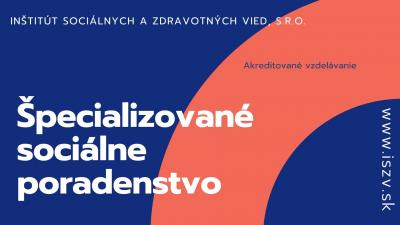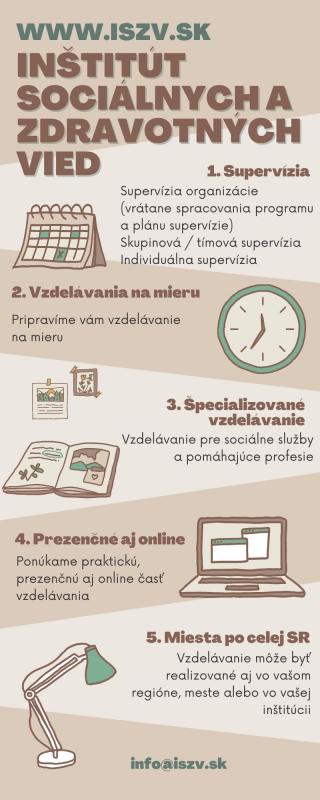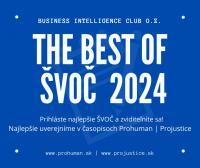Elena Vitalijevna KRYSOVA
Abstract: The paper deals with an actual approach to understanding the quality of social services. The main areas of activity: standardization, quality assurance and quality management of social services, implementation of which allows to organize practical activities of social workers in compliance with modern requests. Also, paper contains a describing of the new technologies of social services in Russia, used to improve the quality of social services for citizens.
Providing quality services categories of the population belonging to social risk - the most important means to ensure social stability, the real citizens' access to their social rights and improve the quality of life.
In social services, the concept of 'quality' refers to the contents, conditions and results of the service. Social service is an instrument of social security.
According to E. Yarskaya-Smirnova, 'quality' can be regarded as compliance with the ideal image of services to satisfy all parties, and actual implementation of this service. Each one - understanding of 'quality', everyone has its own ideal image of quality service. It is therefore important to agree on common definitions or standards for quality service. Perfect image quality service means interconnected process, the result, the comparability of the objectives and results (effectiveness), the goal with the least cost (efficiency). In this case, refers to the costs of different types - both economic and human [1].
The main activity on the formation and development of quality management system provided by social services is the implementation of standards organizations and the quality of social services in the social service institutions, regardless of their organizational and legal forms of ownership.
Russian experience of efforts oriented on improving management quality may be presented in the standardization process and quality assurance of social services. Practical development of standards began in Russia in 1997. But the previous stage was scientific research with main aim – learning social service condition, analyse and expertise of legislation in the field of social service and social security of different classes of people. And also this aim includes studying foreign experience.
Scientific research and development of standards have been prepared by specialist from Russian State Social University (Moscow), Family research institute, specialist from Technical Committee 406 “Social service”. Circuitry “State standard of quality assurance social services” have been established for planning activity on developing standards.
Circuitry structure consists of 3 groups. First group is concerned with basic standards. Second group describes organizational activity standard, which includes such criteria as: services volume, inspection of organizational activity and requirement for equipment, for human research. Third group focuses on standards of social services quality. It includes several standards, for example, “Quality control (audit for quality) of social services” or “Order and conditions of social service”, “Service of dispersal classes”. Authority from different part of Russia and delegates from local government of Russian Federation, social agency took part in the process of creation of standards [2]. After standard effectiveness special stage was – preparing social agency for organizing their professional activity in compliance with standard. Two levels of standards exist: national and regional.
There are two main areas of activity that followed the process of adopting standards. This quality assurance and quality management of social services.
The main task of social workers to provide quality services is the creating of Agency Quality System. National standard GOST R 52497-2005 'Social Service. Agency Quality System', establishes requirements for the system as an institution, identifies the main factors affecting the quality of service, and orders their use in forming a system of quality institutions. According to the standard, under a Agency Quality System understand the totality of its organizational structure (the distribution of responsibilities for the quality of employee services), rules and methods to ensure quality of services, processes, services, agency resources (human, logistical, informational, and others), ensuring the implementation of administrative quality management services. The main document of Agency Quality System is called Quality Manual.
Another important direction - is the quality management of social services in institutions of social security. Identification of common and special features of quality management of social services can be presented:
- Planning and forecasting the quality of social services;
- Taking into account the quality of social services;
- Monitoring the quality of social services;
- Analysis of the quality of social services [3].
Quality management of social services includes the following components:
1. Quality Planning - determining which quality standards are used in the provision of social services, and determining how to implement them;
2. Quality Assurance - the regular overall evaluation services to determine whether the services are established quality standards;
3. Monitoring service delivery results to determine the performance of established quality standards and addressing the causes of unsatisfactory performance [4].
In some regions of Russian Federation are finding ways to optimise and test technologies aimed at improving the quality of social services. They can be reduced to several areas:
1. Care at home by team of social workers.
The technique involves the maintenance of senior citizens and disabled persons are not one but several social workers, as well as an introduction to the state departments of social services in the home health care workers and psychologists. Benefits of home care by team of social workers are undeniable:
- Services tailored to the individual needs of an elderly person;
- Creation of conditions to extend stays an elderly person at home;
- Increasing the mobility of social services for older and disabled people;
- Improving the organization of work of social workers (ordering caseloads for social workers, improving the conditions of his work) [5].
2. Mobile Technology for Social Services - one of the resources to increase coverage for older people with social services. Its development plays a significant role in implementing the rights of older people living in remote rural areas, on social services [6].
3. Care for the elderly in the family.
In the developing and implementing strategies for care of older people attaches great importance to the changing role of family in providing elderly care and support. Field for social services are: development of family forms of care, providing maximum support to the family wishing to care for their elderly relatives at home (psychological support, counselling, organization of temporary care for an elderly man by social workers on family leave period) [7].
4. Creating Methodical Council.
To provide conditions and coordination of the development effectiveness of forms of work, as well as to systematic analysis and study of the implementation of projects, rehabilitation and psychological programs and methodological areas of work in the establishment of social services to citizens can be created by methodological advice. On the Methodological Council considered the proposal provided by the office of the institution of promising areas of work, develops proposals and recommendations on development projects, methodological directions of the institution [8].
5. Technology social services to citizens using the 'single pass'.
This technology is a rapid response to the complaints of citizens and providing them with the fullest possible information on the possibility of social services in the city. 'One Pass' contains much information about the organization, ready to quickly provide a social service by a citizen, and is active in all organizations, social service city [9].
6. The technology of 'one window'.
The technology of 'one window' is a resource to improve the quality of social services and ensuring the principle of targeting of social protection. This technology involves the creation of a common information space, which includes all levels (from district to regional) structures involved in social support. Introduction of a single application form implied a parallel implementation of a single workflow system, allowing using one packet of supporting documents for several types of assistance [10]. In the principle of 'one window' can include not only the provision of social assistance, and coordinating the delivery of social services. Interaction of basic urban services - the so-called 'Circle of Care' - which will enhance the exchange of information about the client and give him a comprehensive social service by all agencies of the city [11].
Improved quality is inextricably linked with the updating of technology for social work with the client. The study of experience in the region, made on the basis of publications in specialized journals, suggests that in most cases we are talking about improving or developing new technologies in the field of social services, and not organizational - administrative aspect.
Summarizing the material reviewed in this paper should indicate the difficulties faced by professionals in social work at the organization of activities in the conformity of the quality standards. These include: the difficulty of assessing such categories as quality of service, as in this case is dominated by a subjective approach on the part of clients and social workers, lack of clearly identified criteria for evaluating the quality of services, lack of standards - numerical indicators of social workers, poor material technical equipment of institutions of social service. However, the obvious is the fact that the organization of work on quality helped streamline the documentation of social services, distribution of responsibility and authority among the staff. The perspective tasks in this area are the development and practical testing of the optimal model assessing the quality of social services.
Author: Elena Vitalijevna KRYSOVA
Mari state technical university, Russia
Aspirant Slovak university of technology, Slovakia
References:
[1] Romanov P.V., Yarskaya – Smirnova E.R. Evaluation of the efficiency, effectiveness and quality of institutions of social support. – Saratov: Publishing Ltd “Scientific paper”, 2007. p. 7
[2] Romanov G., Nefedov V. State standardization in the field of social services. // Standards and quality. – 2002. №1. p. 23
[3] Romanenko A.V. Improvement of the quality management system of social services. / / National Journal of Social Work. 2007. № 3. – p. 35-43.
[4] Romanov P.V., Yarskaya – Smirnova E.R. Evaluation of the efficiency, effectiveness and quality of institutions of social support. – Saratov: Publishing Ltd “Scientific paper”, 2007. p. 41
[5] Smirnova E. Vologda region: dynamics and trends of social services for older people. / / Problems of Social Security. - 2007. № 6. – p. 12.
[6] Smirnova E. Vologda region: dynamics and trends of social services for older people. / / Problems of Social Security. - 2007. № 6. – p. 13.
[7] Smirnova E. Vologda region: dynamics and trends of social services for older people. / / Problems of Social Security. - 2007. № 6. – p. 14.
[8] Ispulova S. Integrated Social Service Centre: Experience. / / Problems of Social Security. - 2005. № 11. – p.18.
[9] Khusainova R. On “single coupon”. / / Social security. - 2008. № 1. – p.11.
[10] Nikonova L.S. Targeted social protection: the experience of municipalities. - Moscow: The Institute for Urban Economics, 2003. – p. 53.
[11] Nikonova L.S. Targeted social protection: the experience of municipalities. - Moscow: The Institute for Urban Economics, 2003. – p. 74.
__________________________________________
Prednáška odznela na vedeckej konferencii Sociálne služby v regióne. Zborník z vedeckej konferencie , ktorá sa konala 18. novembra 2010 v Skalici a bola publikovaná v zborníku z tejto konferencie:
MÁTEL, Andrej – KOVAĽOVÁ, Mária – ŠTEPANOVSKÁ, Martina (eds.)
Vydala Vysoká škola zdravotníctva a sociálnej práce sv. Alžbety v Bratislave, ISBN 978-80-970567-0-4, EAN 9788097056704























